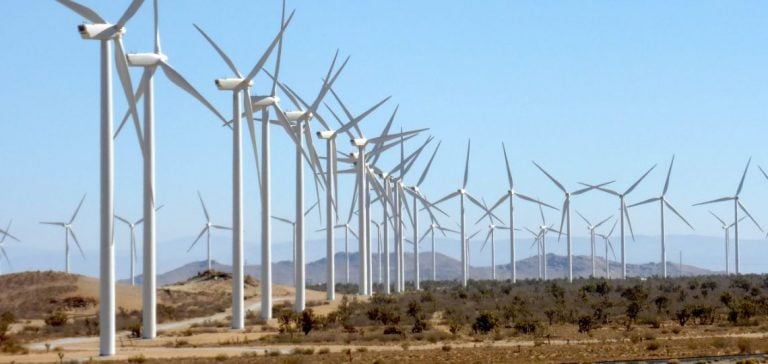Geobiologist dowsers, often called to wind farm sites, are at the center of a growing controversy. Their mission is to detect “telluric currents” believed to disturb animals, particularly cattle. This phenomenon, although popular in some regions of France, has never been scientifically validated. Nevertheless, these practices continue to garner attention, particularly at wind farm construction sites.
An employee of a wind developer, who requested anonymity, reported to AFP that a geobiologist had been invited to a project in western France. His method involved shaking a plastic rod and observing its movements to detect the presence of an underground watercourse. The idea is that these invisible flows could affect animals near the wind turbines.
In 2017, a wind project also sought the services of a geobiologist at the request of a farmer concerned about telluric currents. The expert in question recommended a method to “inform” the concrete slab before it was poured, a process supposedly meant to restore a vibratory function to the structure. According to a report seen by AFP, this was done by adding a homeopathic product called Pneumatit, which includes such curious processes as Bible readings or the playing of classical music during its production.
Accusations of charlatanism
The practice of geobiologists has been criticized by several experts, including Sébastien Point, a physicist at the CNRS. According to him, geobiology presents itself as a scientific discipline by borrowing terms like “cosmo-telluric chimneys” or “torsion fields,” but these concepts have no scientific basis. “We’ve known for two centuries that it’s a scam,” he asserts.
However, these critiques are rejected by the geobiologists themselves, who defend the legitimacy of their profession. Bernard Olifirenko, president of the National Confederation of Geobiology, believes the profession should not be judged by the isolated acts of a few unscrupulous practitioners.
A controversial protocol
The practice of geobiology has taken on particular significance in regions like Loire-Atlantique, where it is sometimes included in the preliminary stages before the installation of wind turbines. The Pays de la Loire Chamber of Agriculture has even set up a protocol requiring wind farm companies to finance these geobiological studies before any installations. While the Loire-Atlantique prefecture confirms the existence of this protocol, it specifies that this type of diagnostic is not mandated by prefectural decree.
Robin Dixon, representing France Renouvelables, denounces this practice as an example of “soft law.” According to him, the absence of this type of geobiological study could penalize project developers in obtaining administrative approvals, even if all other environmental studies have been conducted.
The lack of scientific studies
Although geobiology is popular in some regions, particularly in Loire-Atlantique, no causal link has been proven between telluric currents and the disturbances reported by farmers. The National Institute for Agriculture, Food, and Environment Research (Inrae) points out that there are very few rigorous scientific studies on this subject.
In this context, experts in the renewable energy sector fear that geobiology could become a lucrative business for some practitioners, exploiting the distress of farmers facing poorly explained phenomena.






















